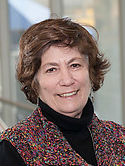| Abstract: |
(from the chapter) Breast cancer is second only to nonmelanoma skin cancer as the most commonly diagnosed cancer among U.S. women. It represents a significant health concern. Research indicates that one in eight women will develop invasive breast cancer over her lifetime; in addition, most people know someone who has been diagnosed with the disease. Psychosocial stress and higher levels of distress are expected during the diagnostic and treatment process. This chapter reflects a perspective developed by working with women and men with breast cancer over the past 25 years. Services are provided for patients across the continuum of care, often related to stages in the disease and treatment trajectory. We have observed that people face similar psychosocial issues and adaptive challenges during this process; the emotional state and intensity of responses change over time and at different stages of treatment. This chapter describes the psychosocial, emotional, and existential issues confronted throughout the experience with breast cancer and interventions utilized along the disease trajectory. Two particularly effective programs for this population are highlighted. Oncology social work begins with those who are newly diagnosed with an early-stage breast cancer as they approach surgery and adjuvant treatment (chemotherapy and/or radiation therapy). Interventions are continued during the posttreatment period and with those diagnosed with advanced disease. We have developed our own perspectives on the adaptive challenges faced by this population and how to best help patients. (PsycINFO Database Record (c) 2015 APA, all rights reserved). |




